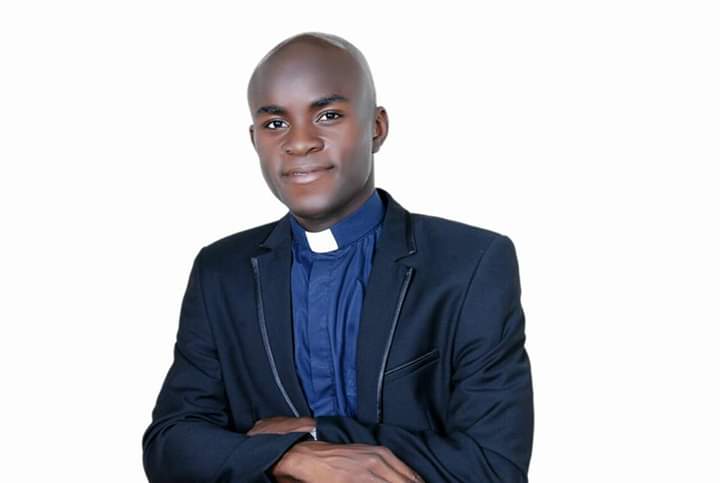Homilies & Reflections
3rd Sunday in Ordinary Time by Rev. Fr Lucas Binnah
Read:First Reading: Jonah 3:1-5.10/Responsorial Psalm: Psalm 25: 4-5ab. 6.7bc.8-9 (R. 4a) Second Reading: I Corinthians 7:29-31/Gospel Acclamation: Mk.1:15/Gospel: Mark 1:14-20
Theme: At His Word I Repent
The reading of Holy Scriptures should follow upon prayer, and prayer in turn should follow reading. Ignorance of Scriptures is ignorance of Christ! – St. Jerome (c. AD 341-420) Real repentance means coming not only to be sorry for the consequences of sin but to hate sin itself – William Barclay Beloved in Christ, today, the Third Sunday in Ordinary Time, we celebrate the Sunday of the Word of God.
It was instituted to be celebrated annually by Pope Francis on 30th September, 2019, the Memorial Day of St. Jerome who translated the Bible directly from Hebrew and Aramaic to Latin. It was during the inauguration of the 1600th anniversary of the death of St. Jerome when the Pope issued an Apostolic Letter, Aperuit Illis (Latin for the opening words of Lk. 24:45 – “He opened their minds to understand the scriptures”). This letter was issued “Motu Proprio,” that is, published by the pope on his own initiative and personally signed by him. By this, the Holy Father aims at encouraging devotion, study and dissemination of the Word of God. Last Sunday, we read about the call of Samuel and the ardent desire of Andrew and his colleague to know Jesus and to bring others to the same. This Sunday, God calls on the Ninevites to repent. Repentance is derived from the Greek, metanoia, which means a change of mind or way of life resulting from penitence or spiritual conversion. It is a movement from love to hatred of sin itself. In the Gospel, we are told that, “The time is fulfilled, and the kingdom of God is at hand; repent, and believe the good news” (Mk. 1:15). It is this good news that the people of Nineveh (presentday northern Iraq) heard in the first reading through the lips of Prophet Jonah, thus: “Yet forty days, and Nineveh shall be overthrown!” (Jon.3:4). It was a clarion call for repentance, and at the word of God, the Ninevites responded immediately, urgently and proactively. They took God’s word to heart by believing the message proclaimed. Looking beyond the messenger, they accepted the message and the sender (God). It was a gospel (good news) to them, and it touched their very being, for, they did not ignore it! This is the power inherent in the Holy Scriptures: “It is living and effective; sharper than any two-edged sword, it pierces to the division of soul and spirit, of joints and marrow, and judges the intentions and thoughts of the heart” (Heb. 4:12). It is the lamp for our feet and a light for our path (cf. Ps. 119:105). Consequently, the Ninevites acknowledged their sin and culpability, and showed a commensurate remorse by changing their lifestyle of waywardness both in word and action. We are told: “And the people of Nineveh believed God; they proclaimed a fast, and put on sackcloth, from the greatest of them to the least of them” (Jon. 3:4-5). This shows that sin, like cancer, requires early detection and treatment, as it were, an immediate remedy, without which it spreads very quickly and finally destroys its victim! Little wonder, when David urges us: “If today you listen to his voice, harden not your heart” (Ps.95:7-8). May the Holy Spirit lighten our hearts. Amen!
Indeed, Nineveh’s response to repentance and conversion is worth-emulating. When repentance called at their door, they showed genuine contrition, one and all, small and great, humans as well as animals (cf. Jon. 3:6-9). They were genuine in accepting their individual and common guilt. In the light of this, God was quick to forgive their sins and so we read: “When God saw what they did and how they turned from their evil ways, he had compassion and did not carry out the destruction he had threatened upon them” (Jon. 3:10). In many instances, God has shown the depth of his mercy, compassion and grace to the sinner. He loves the sinner, but hates their sin. On the cross, Jesus, not only forgave the repentant thief; he also assured him of eternal bliss in paradise (cf. Lk. 23:39-43). While suffering and dying on the cross, Jesus was thinking about us! God is so good that he is not interested in the death of a sinner. Rather, he expects them to repent and be saved (cf. Ez. 18:21-23). As if this was not enough, he wants all to be saved and come to the knowledge of the truth (cf. I Tim. 2:4). In view of this, he is the first to take the initiative by giving us grace as we embrace repentance. He was the one who first called Jonah to send the message of conversion to the Ninevites (cf. Jon. 1:1, 3:1-2). Before the prodigal son decided to come home, his father was already waiting for him. And when he was still a long way off, his father caught sight of him and ran out with wide-open hands, caresses and kisses to welcome his son (cf. Lk. 15:20). If Jesus was not afraid to die for us, he would never be tired in saving us.
Like the Psalmist, we also need to cry out to God as our own response to the call of repentance: “O Lord, make me know your ways” (Ps. 25:4a). Perhaps, this was the inner cry of the Prodigal Son, and truly, God showed him the right way, namely, that of repentance and conversion (cf. Lk. 15:11- 32). How often do we call on God in moments of temptation and struggle with sin? Let us remember that “Good and upright is the Lord; he shows the way to sinners. He guides the humble in right judgment; to the humble he teaches his way” (Ps. 25:8-9). Hence, the way to repentance is always the path of humility, not pride! When we humble ourselves before God like the Ninevites did, times of refreshing, restoration, forgiveness and healing will come our way.
How often do we realise and acknowledge our sins? Do we rationalize our actions and invent politically-correct statements to hide the truth? When we are drunk to stupor, can we humbly and honourably accept that we are drunk not just tipsy? When we steal and cheat, can we admit we are thieves rather than merely involved in financial mismanagement? Can we accept we are liars, whether we consider the lie we tell as small or big or white or holy? Can a lie be holy? And what do we mean when we call a lie white? Does this presuppose black lie also? And lest I forget, what makes a lie white or black? Can we be truthful to call ourselves adulterers and fornicators rather than just cheating husbands/wives/partners? Can we even be bold to admit we are wrong and to apologise when we hurt and harm others? All these designations reveal the self-deceit that sin can nurse within us if we are not humble and courageous enough to admit it. If we can name and claim our sin, we can tame and remedy it. If we can call the spade a spade and not a big spoon, then we are on the path to obtain mercy, forgiveness, peace of heart and mind, fulfilment and progress – things without which life is meaningless and insipid. We can by the grace of God!
Nineveh was the capital of the Great Neo-Assyrian empire and the largest city in the then known world for decades. As such, it was a melting point not only of great things, but also of vice and sin. In our day and age, the sense of sin has been watered down because we have removed God from our lives. We have become the be-all and end-all, and are no longer afraid of the shame, guilt, corruption and danger of sin. Secularism, consumerism, individualism and racism are still visible poisons in society. What about injustice, power-drunkenness, unfair trade, bribery and corruption, religious and political bigotry, human-trafficking, neo-slavery, uncontrolled pleasure, immorality, crime, violence, terrorism, genocide, infanticide and abortion? We keep silent and watch them roll out with rapidity, impunity and absurdity. This is structural evil, and until we call sin by its name, we will not be able to proffer appropriate remedies to it. In spite of this, God, through his eternal word, gives us the opportunity to repent so as to obtain mercy, healing and restoration.
In turning our attention to God through repentance, we need to come to terms with the reality that we live with expiry dates. Therefore, we have very little time at our disposal and we need to use it well. We are mortal, and the world in which we live has limits also. In this vein, St. Paul tells the Corinthians: “For the form of this world is passing away” (I Cor. 7:31). Although Paul’s statement envisaged the immediate dawn of the Parousia, that is, the Second Coming of Christ, in effect, he was speaking about an eternal truth, namely that, one day, this world will end, and whether we would be happy or sad in the after-life depends on how we live in this spatio-temporal world. Therefore, rather than live as if nothing is at stake, we are to look beyond what meets the eye to think about our future with and in God. When we turn to God, our future is bright because he holds the future, and not only that, we will also live with him forever and ever.
We need to enthrone God’s word on the table of our hearts and in prominent places in our homes. We all should own Bibles, and even give some to others as gift. Honouring the Bible and placing it at the centre of our lives is non-negotiable if we truly love God! We should love and cherish it, and inculcate the habit of reading, studying, praying and sharing it daily. This should lead to the practice of Lectio Divina (divine reading), where we commune every day with God by reading, meditating, praying, contemplating and acting on his Sacred Word. Interest in the Holy Scriptures will lead to devotion and celebration of it. The end result is a life full of divine power, peace, joy, happiness, contentment, miracle, success, salvation, favour, progress, fulfilment and blessing.
Like Simon Peter, Andrew, James and John in today’s Gospel, we too must repent and respond to the call and word of God with immediacy, generosity and a determination to change our old ways. Procrastination is the thief of time. The time to act is now! Christ calls us to follow him in the ordinariness of life, from our various states of life in order to serve him. If we do, we would be fruitful and happy. Others too would come to know Christ through our repentance and conversion. We must not only change; we must also improve, on a daily basis! We must consciously decide to answer God’s summons, for he alone is the way that guides us, the truth that sets us free and the life that sustains us even unto eternity. May the Word of God which is the Sword of the Spirit touch us deeply, so that, we may open the door of our hearts to embrace sincere repentance for the salvation of our souls.
May God bless us abundantly! Happy Word of God Sunday, and a blessed week ahead!
Remember: #At-His-Word-I-Repent#
By Rev. Fr. Lucas Binnah Junior, C.S.Sp.
Sharing is caring!
Ghana Catholic News aim to provide up to date news on the Catholic Church in Ghana on various disciplines such as diocese, priesthood, programs/events, promoting of the Catholic faith, daily readings, homilies, Catechism, etc.





